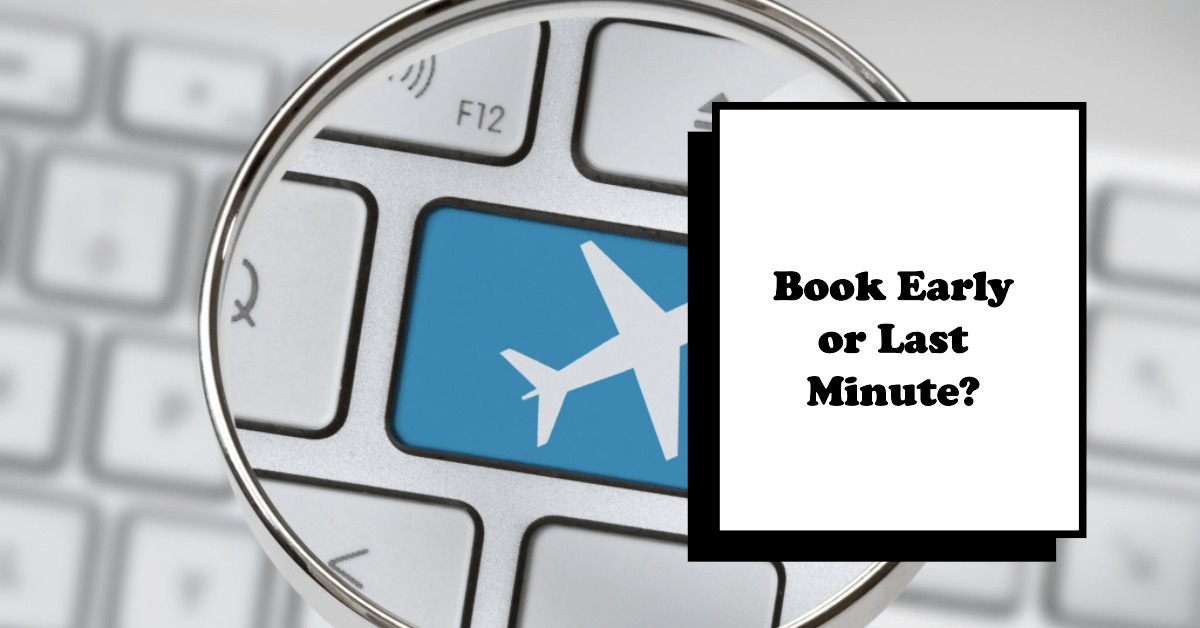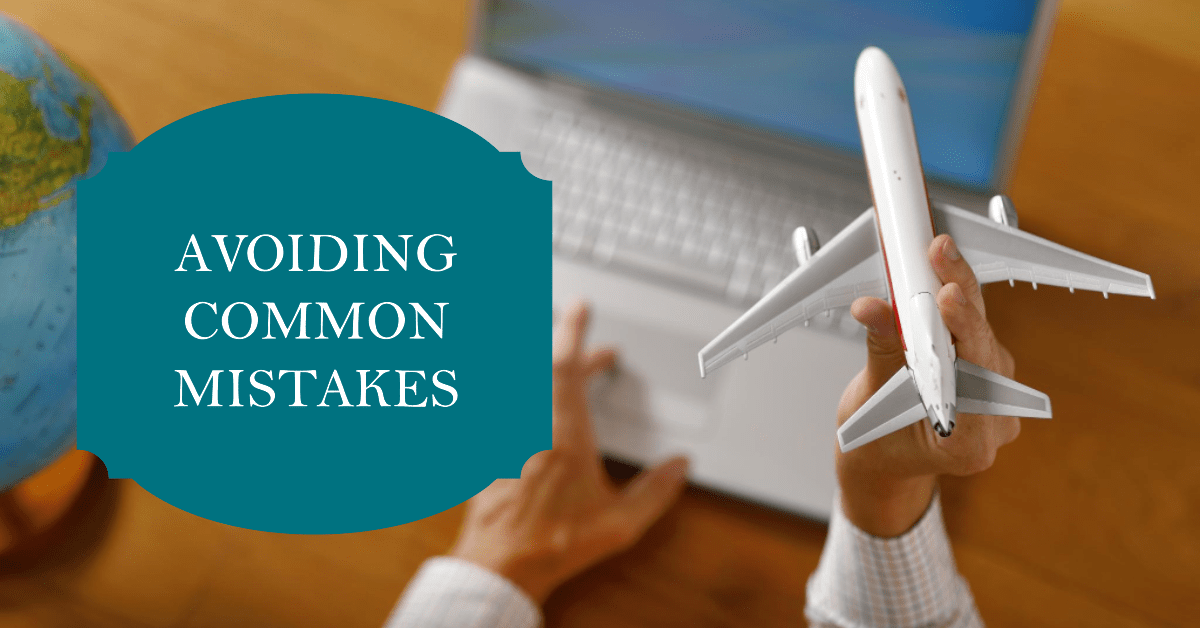Unlock Savings: Discover the Best Time to Book a Flight
Contents
- 1 Unlock Savings: Discover the Best Time to Book a Flight
- 1.1 The Importance of Timing in Flight Booking
- 1.2 Understanding Airline Pricing Algorithms
- 1.3 Seasonal Influences on Airline Ticket Prices
- 1.4
- 1.5 Booking Flights: Early Bird versus Last Minute
- 1.6 Day of the Week: Best Days to Book a Flight
- 1.7 The Cheapest Time of Day to Book Flights
- 1.8 Conclusion
- 1.9 FAQ
- 1.9.1 What is the best time to book a flight?
- 1.9.2 How do airline pricing algorithms work?
- 1.9.3 How do seasonal influences affect airline ticket prices?
- 1.9.4 Should I book flights early or wait for last-minute deals?
- 1.9.5 What are the best days of the week to book a flight?
- 1.9.6 What is the cheapest time of day to book flights?
- 1.9.7 How can I utilize flight search engines, comparison tools, and alerts for better deals?
- 1.9.8 What are some common mistakes to avoid when booking flights?
- 1.10 Impact of Holidays and Special Events on Flight Prices
- 1.11 Signing Up for Airline Discounts and Alerts
- 1.12 How to Use Flight Comparison Tools Effectively
- 1.13 Flight Booking Strategies from Frequent Flyers
- 1.14 Avoiding Common Mistakes in Flight Booking
- 1.15 Utilizing Airline Miles and Credit Card Points
As an avid traveler, I know that timing plays a pivotal role when trying to score the best deals on flights. By familiarizing yourself with flight booking trends, you can plan your trips more effectively, save money, and even maintain a sense of control over your travel budget. In this article, we will dive into various factors affecting the best time to book a flight, reveal useful flight booking tips, and share valuable insights on finding cheap flights for your next adventure.
Key Takeaways
- Understanding when to book flights can lead to significant savings.
- Airlines use complex algorithms to set prices, which fluctuate in real-time.
- Seasonal factors, days of the week, and time of day affect airline ticket prices.
- Frequent flyers employ a variety of strategies to score the best flight deals.
- Tips for avoiding common flight booking mistakes and maximizing rewards and discounts.
The Importance of Timing in Flight Booking

The Importance of Timing in Flight Booking
When it comes to finding the best deals on flights, timing plays a crucial role. In this section, I’ll discuss how timing can impact the price of flights and why it’s considered a key factor in travel planning. We’ll explore various aspects that affect timing such as demand, typical booking windows, and sales cycles in the airline industry.
Factors like supply, demand, and seasonality contribute to fluctuations in airline ticket prices. For instance, high demand periods like the holidays or peak travel seasons can lead to increased flight prices, while low demand times, like the early months of the year, typically see fares drop.
Airline ticket prices are influenced by multiple parameters that need to be analyzed in order to understand the ideal time frame for booking.
I’ll also explain why taking the sales cycles in the airline industry into account are essential for securing flight deals. Airlines have sales cycles where they release promotional fare sales, often at the beginning of the week, that can last anywhere from a few hours to several days.
As a traveler, keeping an eye on these sales cycles can help you determine the best time to book your flight.
To further illustrate how timing affects flight pricing, let’s take a look at a table comparing average fares for different booking windows and sales cycles:
| Booking Window | Average Fare | Sales Cycle |
| 6 Months in Advance | $450 |
Low Airfare Alerts
|
| 3-4 Months in Advance | $375 |
Regular Fare Sales
|
| 1-2 Months in Advance | $400 | Seasonal Sales |
| 1-2 Weeks in Advance | $475 |
Last-Minute Deals
|
From the data above, we can see that the best deals are typically found in the 3-4 months in advance window, coinciding with regular fare sales by airlines. However, it’s crucial for travelers to remain adaptable and leverage various strategies to optimize their flight bookings, such as monitoring prices and being open to alternative days and routes.
It’s also worth considering:
- Typical booking windows – These vary depending on factors such as destination and seasonality. Stay aware of the standard booking windows for flights to your chosen destination and plan accordingly.
- Seasonal travel trends – Timing is crucial for any traveler aiming to score the best flight deals. During peak travel seasons, be prepared to book further in advance, whereas lower demand periods may allow more flexibility.
- Airlines sales and promotions – Be observant of airline sales, special offers, and flash deals that may arise within booking windows, giving you the chance to snatch a fantastic deal at the right moment.
In conclusion, understanding the importance of timing and being aware of factors that affect flight pricing can prove invaluable in helping you book your flights at the most opportune moments. By taking all relevant factors into account and remaining flexible, you can increase your chances of finding the best deals on flights.
Understanding Airline Pricing Algorithms

Understanding Airline Pricing Algorithms
Airlines have developed advanced pricing algorithms that enable them to maximize profits with data-driven techniques. Over the years, these algorithms have become highly responsive, adaptive, and complex. To snag some cheap flights, learning the basics of these algorithms and the various factors that affect airline ticket prices can provide valuable flight booking tips.
The Role of Dynamic Pricing
At the center of airline pricing algorithms is dynamic pricing. It’s a tactic employed by airlines that adjust ticket prices in real-time based on demand, availability, and various external factors such as fuel cost, competition, and economic conditions. The dynamic nature of these pricing models is the reason you might see fluctuating ticket prices within a matter of hours or even minutes.
Dynamic pricing ensures airlines can optimize revenue by capitalizing on market trends and quickly respond to shifts in demand or external factors.
Some of the key factors driving dynamic pricing include:
- Booking window: The time between booking and departure can significantly impact ticket prices. As a general rule, airlines often sell tickets at higher prices closer to the departure date.
- Time of year: Seasonal fluctuations, such as peak and off-peak travel periods, affect demand and ticket prices.
- Competitor pricing: Airlines are constantly tracking rival carriers’ prices to maintain competitiveness in the market.
- Customer behavior: Using historical data, airlines can anticipate how customers are likely to react to price changes and adjust their pricing strategies accordingly.
How Often Do Airline Prices Change?
Airlines adjust ticket prices on a frequent basis — sometimes multiple times per day. This means that airfare can be a moving target, constantly changing in response to various factors. The exact frequency of price changes will depend on the airline, route, and available inventory.
For travelers looking to book flights, it’s crucial to recognize these subtle shifts in pricing and make informed decisions regarding when to book. While there’s no magic formula for predicting increases or decreases in ticket prices, having a better understanding of airline pricing algorithms can serve as a helpful guide.
Seasonal Influences on Airline Ticket Prices
Understanding the impact of seasons on airline ticket prices is essential to finding the best time to book a flight and making the most of seasonal flight deals. As the travel industry experiences fluctuations throughout the year, it’s crucial to recognize how peak travel times and off-peak periods can affect the cost of flights. In this section, I’ll guide you on how to leverage these seasonal variations to secure cheap flights and make the most of your budget.
Timing plays a significant role in securing the best deals on flights; knowing when to book is just as important as knowing where to look.
Peak Travel Times
During peak travel seasons such as summer vacations and major holidays, the demand for flights usually increases as people take advantage of their time off to travel. As a result, airlines often raise their prices during these periods. Some examples of peak travel times are:
- Summer vacation season (June, July, and August)
- Thanksgiving, Christmas, and New Year’s holiday season (November and December)
- Spring break (March and April depending on school schedules)
Booking at these times may come at a premium; however, it’s still possible to find deals if you plan ahead and start searching well in advance of your travel dates.
Off-Peak Travel Periods
Contrastingly, off-peak travel periods typically offer cheaper flight deals, as airlines lower their prices to encourage bookings during months with lower demand. Off-peak periods often occur:
- After major holidays
- During the school year (excluding school breaks)
- Between peak seasons, such as late winter (January and February) and early fall (September and October)
During these periods, you’re more likely to find cheaper flights and possibly score some seasonal flight deals if you’re flexible with your travel plans.
| Season | Timing | Average Price Trends |
| Peak Season (High Demand) | June, July, August, November, and December | Higher Flight Prices |
| Off-Peak Season (Low Demand) | January, February, September, and October | Lower Flight Prices |
| Shoulder Season (Moderate Demand) | March, April, and May | Moderate Flight Prices |
Booking Flights: Early Bird versus Last Minute

Booking Flights: Early Bird versus Last Minute
When it comes to booking flights, travelers often face a conundrum: Should they secure an early bird flight deal or hope for a lucrative last-minute offer? Each approach has its advantages and potential pitfalls. In this section, I’ll walk you through the pros and cons of both strategies to help you determine which one works best for your travel plans.
Early Bird Flight Deals
Booking flights well in advance can have several benefits, primarily in the form of lower prices. Most airlines release their schedules around 10 to 12 months before departure, and typically, the best prices can be found within the 40 to 140-day window before the travel date. Booking early allows you to:
- Secure your preferred travel dates, times, and routes.
- Enjoy a wider choice of seat options and class upgrades.
- Capitalize on early bird discounts and promotions.
- Have ample time to plan or coordinate with other travelers in your group.
However, early bird booking does not come without its drawbacks:
- You may need to secure your vacation time at work well in advance.
- Life circumstances may change, leading to changes in travel plans.
- Occasionally, last-minute sales might offer better prices, but there’s no guarantee.
Last-Minute Flights
Booking flights at the last minute can also lead to significant savings if you’re able to take advantage of last-minute deals. These offers usually become available when airlines try to fill empty seats on upcoming flights. The benefits of last-minute booking include:
- Greater likelihood of snagging discounted prices.
- Flexibility to make spur-of-the-moment plans or changes.
- Taking advantage of low-demand travel periods, such as weekdays or off-season months.
On the flip side, waiting until the last minute to book flights comes with its own challenges:
- Less availability of preferred travel dates, times, and routes.
- Reduced choices in seating and class upgrade options.
- Anxiety regarding uncertainties in price fluctuations.
- Likelihood of higher prices if no deals become available.
“Booking early comes with the certainty of lower prices, while waiting for last-minute deals might yield bigger savings but involves greater risks.”
Striking the Right Balance
To maximize your chances of securing a good deal, consider adopting a balanced approach that suits your individual preferences and travel plans. Here’s a rundown of best practices for early bird and last-minute strategies:
| Early Bird Strategy |
Last-Minute Strategy
|
| Monitor airline promotions and sales well ahead of your travel dates. Set weekly or bi-weekly reminders to check flight prices. Utilize fare alerts and price trackers offered by flight search engines. |
Be cautious of last-minute cancellations and changes in plans.
Regularly check for last-minute deals and discounts on airline websites and flight search engines. Stay flexible with your travel dates, times, and routes. |
By carefully considering the benefits and risks associated with both early bird flight deals and last-minute flights, you’ll be better equipped to make an informed decision and book a flight that best suits your travel needs and budget. Always remember that timing plays a crucial role in flight booking strategies, and striking the right balance is key to ensuring an enjoyable and cost-effective travel experience.
Day of the Week: Best Days to Book a Flight

The Cheapest Time of Day to Book Flights
Understanding which days of the week yield the best savings when booking flights could have a significant impact on travel expenses. In this section, I will focus on the most ideal days to book a flight and provide explanations as to why particular days, such as Tuesdays and Wednesdays, offer more savings than others.
Why Tuesdays and Wednesdays Are Crucial
After analyzing the booking trends and fare fluctuations in the airline industry, it becomes clear that some days of the week offer better deals than others. The evidence consistently points towards Tuesdays and Wednesdays as the best days to book a flight. This trend is attributed to the following factors:
- Airlines release sales at the beginning of the week: Most airlines tend to release sales and promotional fares on Mondays or early Tuesdays. As other airlines try to match these offers, prices typically are at their lowest on Tuesdays and, in some cases, Wednesdays.
- Lower demand for mid-week travel: Many travelers prefer flying during weekends, leaving the middle of the week with less demand. As a result, airlines tend to offer more affordable fares on Tuesdays and Wednesdays to fill up empty seats.
- Business travel patterns influence prices: Business travelers usually book their flights at the beginning or end of the week, which drives up prices. Consequently, ticket prices often dip during Tuesdays and Wednesdays to accommodate the reduced demand during this time.
It’s important to consider these factors when you’re in the process of booking flights, as being aware of the optimal days of the week can lead to substantial savings. To illustrate the point, let’s examine the average savings a traveler can expect when booking on different days of the week:
| Day of the Week | Average Savings |
| Monday | $30 |
| Tuesday | $65 |
| Wednesday | $60 |
| Thursday | $45 |
| Friday | $20 |
| Saturday | $40 |
| Sunday | $15 |
As the table above demonstrates, booking on Tuesdays and Wednesdays can yield the most significant savings on average. Of course, prices can vary based on the destination, time of year, and specific airline, so it’s essential to monitor pricing trends and keep up-to-date on the best flight booking strategies.
“Those who book their flights on Tuesdays and Wednesdays often find the best deals and save a considerable amount of money.”
By following these suggestions and being aware of the best days to book a flight, you can make more informed decisions and capitalize on the most cost-effective deals. Remember, timing is crucial when it comes to flight booking, so always keep an eye on prevailing trends and market movements to secure the best prices possible.
The Cheapest Time of Day to Book Flights

The Cheapest Time of Day to Book Flights
Time of day plays a crucial role in securing the most affordable flights, just as important as the day of the week. Understanding these trends can help you get the best flight deals possible. This section reveals which parts of the day are typically the cheapest for booking flights and provides insight into why these trends occur.
Booking early in the morning or late at night can often result in lower ticket prices. This is due to multiple factors, including diminished website traffic and airlines adjusting their pricing algorithms during these off-peak hours.
Below is a table that demonstrates the typical cheapest time of day to book flights:
| Time of Day |
Flight Booking Recommendation
|
| Early Morning (12 AM – 6 AM) |
Great time to book, as prices tend to be lower.
|
| Mid-Morning (6 AM – 10 AM) |
Prices may begin to increase during this time.
|
| Late Morning (10 AM – 12 PM) |
Variable, may see a mixture of low and high prices.
|
| Afternoon (12 PM – 5 PM) |
Prices tend to be higher during these peak hours.
|
| Evening (5 PM – 9 PM) |
Prices may begin to drop as website traffic decreases.
|
| Late Night (9 PM – 12 AM) |
Another great time to book, as prices are typically lower.
|
Timing your flight booking around the cheapest time of day can save you a significant amount on your overall travel expenses.
Keep in mind that these trends may vary depending on the airline, so monitoring prices and using flight comparison tools can provide even more insights. It is essential to be proactive and adaptable when obtaining the best flight deals, as these prices are subject to change without warning.
Following these flight booking tips can increase your chances of securing the cheapest flights and optimizing your travel budget. Remember that timing is everything when planning your trip, and knowing when to take advantage of the cheapest time of day to book flights can ultimately lead to substantial savings.
Remember that each credit card and rewards program will have its terms and conditions. It is crucial to ensure you understand these and use your rewards efficiently, maximizing the benefits of airline miles, credit card points, and reward travel.
Conclusion
In summary, knowing the best time to book a flight is essential for securing the most affordable deals and maximizing your travel budget. Throughout this article, I’ve provided comprehensive flight booking tips and strategies that will undoubtedly help you make the most informed decisions when planning your trips. By understanding the dynamics of airline pricing algorithms, the impact of timing, and leveraging flight search engines, you can unlock significant savings on your next flight.
Armed with these insights, you can travel more efficiently and economically, regardless of whether you’re an early bird planner or searching for last-minute deals. By paying close attention to the day of the week, the time of day, and seasonal influences, you’ll stand a better chance at scoring unbeatable discounts. Additionally, don’t forget to sign up for airline discounts and alerts, utilize flight comparison tools, and take advantage of airline miles and credit card reward points to further enhance your savings.
Ultimately, the key to finding the perfect flight bookings lies in staying well-informed and adapting your strategy as the market evolves. With a better understanding of the factors affecting flight prices, you’ll be better equipped to navigate the world of air travel, making the best decisions for your travel experiences and budget. Happy booking!
FAQ
What is the best time to book a flight?
The best time to book a flight varies depending on factors like seasonal influences, holidays, and special events. However, general trends suggest booking on Tuesdays or Wednesdays and approximately 2–3 months in advance for domestic flights, and 5–6 months for international flights can lead to better deals.
How do airline pricing algorithms work?
Airlines use complex algorithms and dynamic pricing to adjust ticket prices in real-time based on factors such as demand, seat availability, and competition. These algorithms can change prices multiple times a day to maximize revenue while remaining competitive.
How do seasonal influences affect airline ticket prices?
Airline ticket prices often fluctuate depending on peak and off-peak travel seasons. During peak times like holidays and summer months, prices tend to be higher due to increased demand. Booking during off-peak seasons can result in more significant savings.
Should I book flights early or wait for last-minute deals?
Both early bird and last-minute flight deals can provide savings, but they come with their own set of potential risks and benefits. Booking early often secures better pricing and availability, while last-minute deals might offer even more significant savings but present the risk of limited or no availability and less flexibility in travel plans.
What are the best days of the week to book a flight?
Tuesdays and Wednesdays are typically considered the best days of the week to book a flight, as airlines are more likely to offer discounts and lower prices after their weekly fare adjustments made on Mondays.
What is the cheapest time of day to book flights?
Early mornings and late evenings are generally the cheapest times of day to book flights, as there is less competition for limited seat availability. Keep in mind that these times may also experience fewer flights and less ideal travel times for some destinations.
How can I utilize flight search engines, comparison tools, and alerts for better deals?
Using flight search engines with flexible date filters, actively comparing prices among different airlines and platforms, and signing up for airline newsletters and price drop alerts can help you stay informed and ensure you’re getting the best deals possible.
What are some common mistakes to avoid when booking flights?
Some common mistakes to avoid are not checking for alternate airports offering better deals, ignoring layover times and total trip duration, and failing to utilize airline miles or credit card reward points.
Bonus Tips
Impact of Holidays and Special Events on Flight Prices

Impact of Holidays and Special Events on Flight Prices
It’s essential to understand how holidays and special events can cause significant fluctuations in airline pricing and how to strategize your booking accordingly. During holidays and events like Christmas, Thanksgiving, or major festivals, flight prices tend to skyrocket due to the surge in demand. It’s not only the holidays flight prices that get affected, but also the availability of flights. The key to snagging great special events flight deals and avoiding exorbitant fees during peak seasons is planning and booking well in advance.
The Best Strategy for Booking During Peak Seasons
To make the most of your peak season travel and not feel the pinch in your wallet, consider the following strategies:
- Book flights at least 2-3 months before the holiday or event to take advantage of lower prices and better seat availability.
- Avoid traveling on the exact day of the holiday. Instead, try flying a few days before or after to find cheaper fares.
- Be flexible with your travel dates and destination, as it can help you find better deals and less crowded flights.
- Keep an eye on fare trends and set up price alerts to stay informed about deals and discounts.
- Don’t forget to explore nearby airports as they might offer more affordable flight options.
Here’s a table that shows an estimated percentage difference in flight prices during various holidays and special events compared to regular fares:
| Holiday/Event |
Average Price Increase (%)
|
| Christmas/New Year | 15-30 |
| Thanksgiving | 10-20 |
| Easter | 7-15 |
| Major Music Festivals | 10-25 |
| Sporting Events (Super Bowl, World Cup, etc.) | 20-50 |
Utilizing these strategies will help you combat the fluctuating prices associated with holiday and event travel, allowing you to enjoy a memorable trip without breaking the bank. With some planning and careful attention to these tips, you’ll be able to embrace peak season travel without the financial stress.
Signing Up for Airline Discounts and Alerts

Signing Up for Airline Discounts and Alerts
One of the most effective ways to stay updated on the best flight deals and promotions is signing up for airline discounts and alerts. I will discuss the advantages of enrolling in airlines’ newsletters, discounts, and alert systems that notify travelers when prices drop or special offers arise, offering strategies for remaining ahead of the curve.
| Steps to Receive Airline Discounts and Alerts | Benefits |
Popular Providers
|
| Sign up for airline newsletters | Be the first to learn about upcoming sales, promotions, and events. |
American Airlines, Delta Air Lines, Southwest Airlines
|
| Join frequent flyer programs | Earn miles and access to exclusive discounts and deals. |
United MileagePlus, Alaska Mileage Plan, JetBlue TrueBlue
|
| Subscribe to flight deals alert services | Receive notifications of price drops and limited-time deals for your preferred destinations. |
Scott’s Cheap Flights, The Flight Deal, Airfarewatchdog
|
Most airlines offer newsletters that provide subscribers with information on sales, promotions, and special events. By signing up, you can receive insider access to the best deals straight to your inbox, allowing you to book a flight at the lowest possible price. Frequent flyer programs, on the other hand, reward loyal travelers by offering exclusive discounts and deals in exchange for accumulated miles or points.
Apart from directly engaging with airlines, you can also subscribe to third-party flight deals alert services which monitor airfare prices for specific destinations or travel periods. These services send alerts to your email or smartphone app when they detect a significant price drop or limited-time deal, enabling you to act quickly and secure the best price.
- Personalize Your Preferences: Customize the alerts to receive notifications on the routes, regions, and travel dates that genuinely interest you. This targeted approach helps ensure that you only receive relevant offers.
- Stay Informed: Regularly read the newsletters and alerts, keeping track of the trends and noting any patterns in pricing or deals.
- Act Fast: Since flight deals and promotions can sell out or expire quickly, it’s vital to book as soon as you see a deal that matches your travel preferences.
Pro tip: Combine airline discounts and alerts with the strategies discussed earlier in this article, such as booking flights on specific days of the week or times of the day, to maximize your savings.
By following these guidelines and signing up for airline discounts and alerts, you increase the chances of landing fantastic flight deals and ensuring your next trip won’t break the bank.
How to Use Flight Comparison Tools Effectively

How to Use Flight Comparison Tools Effectively
Flight comparison tools play a crucial role in helping travelers find the best deals when booking flights. To make the most of these tools, it’s essential to understand how to use them effectively and ensure a fair comparison between flight options. In this section, we’ll explore how to compare similar flights and use various features offered by these tools to identify the absolute best deal.
Comparing Apples to Apples: Ensuring a Fair Comparison
To make an accurate comparison between different flight options using flight comparison tools, you must take into account several factors, such as airlines, departure and arrival times, layover durations, and overall travel duration. Here are some steps to follow:
- Focus on direct flights or flights with similar stopover counts.
- Compare flights from the same airports, as prices may vary depending on the departure and arrival locations.
- Pay attention to layovers and total travel duration. Longer layovers could increase overall travel time and may lead to additional costs such as meals and lodging.
- Consider comparing flights within the same booking class, as prices and inclusions can vary significantly between economy, business, and first-class tickets.
| Flight Comparison Tool Feature | Benefit |
| Flexible Date Search |
Helps find better deals by comparing flights on different dates within a specified time frame.
|
| Price Alert |
Sends real-time notifications when prices for your preferred flight drop, allowing you to book at the most opportune time.
|
| Nearby Airport Options |
Expands the range of available flights by including other departure or arrival airports in the same region.
|
| Sorting and Filtering |
Organizes and filters search results based on various criteria such as price, duration, and airline, helping you find the best options quickly.
|
By implementing these flight booking strategies and capitalizing on the features offered by flight comparison tools, you’ll be better equipped to confidently book a flight that best suits your needs and budget.
Remember, in the world of flight booking, knowledge is power. Equip yourself with the right skills and tools to make informed decisions and unlock substantial savings on air travel.
Flight Booking Strategies from Frequent Flyers

Flight Booking Strategies from Frequent Flyers
Many travelers dream of unlocking the secrets to the best flight booking strategies. A lucky few have turned those dreams into reality by becoming frequent flyers who navigate the world of airlines with finesse. Their tried and tested tactics reveal how to make the most of every booking, and in doing so, how to make traveling more affordable and enjoyable. This section sheds light on some of those invaluable tips and strategies.
“The key to success is monitoring flight prices for your desired destination constantly and looking for patterns.” – Gary Leff, travel blogger and frequent flyer.
While every traveler has their own approach, certain tips are universally useful when it comes to booking flights. To help you follow in the footsteps of these seasoned flyers, we’ve compiled a list of their top recommendations for upping your flight booking game:
- Be flexible with your travel dates: If your schedule allows, always be prepared to adjust your travel dates slightly in order to take advantage of fluctuating prices.
- Look for alternative airports: Try searching for nearby airports that might offer better prices than the most popular hubs.
- Stay updated on fare sales: Many airlines offer fare sales periodically, informing subscribers via newsletters or social media. Make sure you know when sales are happening to get the best deals.
- Use tools to track ticket prices: Tools like Google Flights and Hopper can help you monitor price trends and even set up alerts for any expected price drops that might come up in the future.
- Book during low-demand periods: Avoid booking on weekends as airlines generally increase prices during periods of high demand, such as weekends, holidays, and major events.
- Consider using your frequent flyer miles or credit card reward points: Know when it’s best to redeem your loyalty points in order to maximize their value and potentially secure free or discounted flights.
In addition to these general tips, it’s crucial to recognize that certain destinations may have unique pricing trends and strategies. To help you navigate this fluctuating world, let’s take a closer look at some frequent flyer tips specific to popular destinations.
| Destination | Best Time to Book a Flight |
Frequent Flyer Tips
|
| New York City | 4-5 months in advance |
Try Newark or JFK airports, and consider flying on a Tuesday or Wednesday for cheaper rates.
|
| San Francisco | 8-12 weeks in advance |
Consider Oakland or San Jose airports as alternatives to SFO, and aim to fly on weekdays if possible.
|
| Paris | 4-6 months in advance |
Look for less popular airports like Beauvais or Charles de Gaulle, and avoid booking during peak seasons like summer or Christmas.
|
| Tokyo | 3-7 months in advance |
Consider flying into Haneda or Narita airports, and avoid peak travel periods such as Golden Week.
|
| Miami | 3-6 months in advance |
Opt for weeknight flights to save money, and avoid Miami-Dade County’s spring break season or Art Basel.
|
The journey towards becoming a savvy traveler starts with knowing how to book flights strategically. By incorporating guidance and frequent flyer strategies detailed in this section, you’ll soon find yourself enjoying the benefits of more affordable flights and enhanced travel experiences.
Avoiding Common Mistakes in Flight Booking

Avoiding Common Mistakes in Flight Booking
Despite providing a wealth of valuable information and tips, flight booking can still be a complex process fraught with potential errors. Let’s dive into common pitfalls that travelers often encounter and discuss how to avoid them for a seamless travel experience.
Not Checking Alternate Airports
One mistake travelers frequently make is neglecting to explore alternative airports in their destination city. Many major cities are served by multiple airports, and sometimes smaller, lesser-known airports offer better deals than their larger counterparts.
For instance, if you’re flying to Los Angeles, you might consider checking flight prices at Burbank Airport (BUR) or Long Beach Airport (LGB) in addition to Los Angeles International Airport (LAX). These smaller airports may have fewer amenities but could potentially save you a significant amount on your ticket price.
TIP: Research the airport options at your destination and compare flight prices to potentially uncover substantial savings.
Ignoring Layover Times and Total Trip Duration
Another common mistake is focusing solely on the ticket price while disregarding layover times and the total duration of the trip. Flight duration and layover length play a critical role in overall travel comfort and cost. Lengthy layovers can result in unexpected expenses and fatigue, impacting your travel experience negatively.
To avoid this pitfall, it’s essential to examine these factors when booking your flights:
- Layover duration: Choose layover times that allow for a comfortable transition between flights, avoiding excessively long wait times that add unnecessary hours to your trip.
- Total trip duration: Be mindful of the overall length of your journey, considering both flight time and layovers. Longer trips may seem like a good deal at first glance, but they could entail additional costs for food and accommodations.
In conclusion, avoiding common flight booking mistakes such as overlooking alternate airports and neglecting layover times can help you book a flight that is not only cost-effective but also enhances your travel experience. Keep these vital flight booking tips in mind when planning your next trip and enjoy a hassle-free journey.
Utilizing Airline Miles and Credit Card Points

Utilizing Airline Miles and Credit Card Points
Maximizing the value of your spending by utilizing airline miles and credit card points can be a game-changer for securing free or discounted flights. Implementing best practices for reward travel can help you get the most bang for your buck and put those points to good use. In this section, we will guide you through some of these best practices.
Best Practices for Reward Travel
- Know your credit card’s reward structure: Familiarize yourself with the specific reward structures of your credit card. Different credit cards have varying rewards programs, so identifying which ones offer the most value for airline miles and travel-related purchases is essential.
- Pay attention to sign-up bonuses: Many credit card companies offer substantial sign-up bonuses to attract new customers. These bonuses can be a goldmine for airline miles and other rewards.
- Be flexible with your travel plans: When utilizing rewards points, you may have to be flexible with travel dates and destination choices to maximize your options and get the best deals.
- Book in advance: Most rewards programs have limited availability, and these seats tend to fill up quickly. Booking your reward travel well in advance can ensure that you have access to the best options and avoid disappointment.
- Utilize multiple credit cards: If you have more than one credit card with reward points, use them strategically in combination to maximize your savings and airline mile accumulation.
- Here is a table showcasing a comparison of some popular credit cards and their reward programs, focusing on their benefits for travelers:
| Credit Card | Annual Fee | Airline Miles Per Dollar Spent | Sign-up Bonus |
Additional Travel Perks
|
| Chase Sapphire Preferred | $95 | 2x for travel and dining; 1x on all other purchases | 100,000 bonus points after spending $4,000 in the first 3 months |
No foreign transaction fees, trip cancellation/interruption insurance, and more
|
| American Express Platinum | $695 | 5x on flights booked directly with airlines or through Amex Travel; 1x on all other purchases | 100,000 bonus points after spending $6,000 in the first 6 months |
$200 air line fee credit, airport lounge access, and more
|
| Capital One Venture Rewards | $95 | 2x on all purchases | 60,000 bonus points after spending $3,000 in the first 3 months |
Global Entery or TSA PreCheck fees credit, no foreign transaction fees, and more
|

























